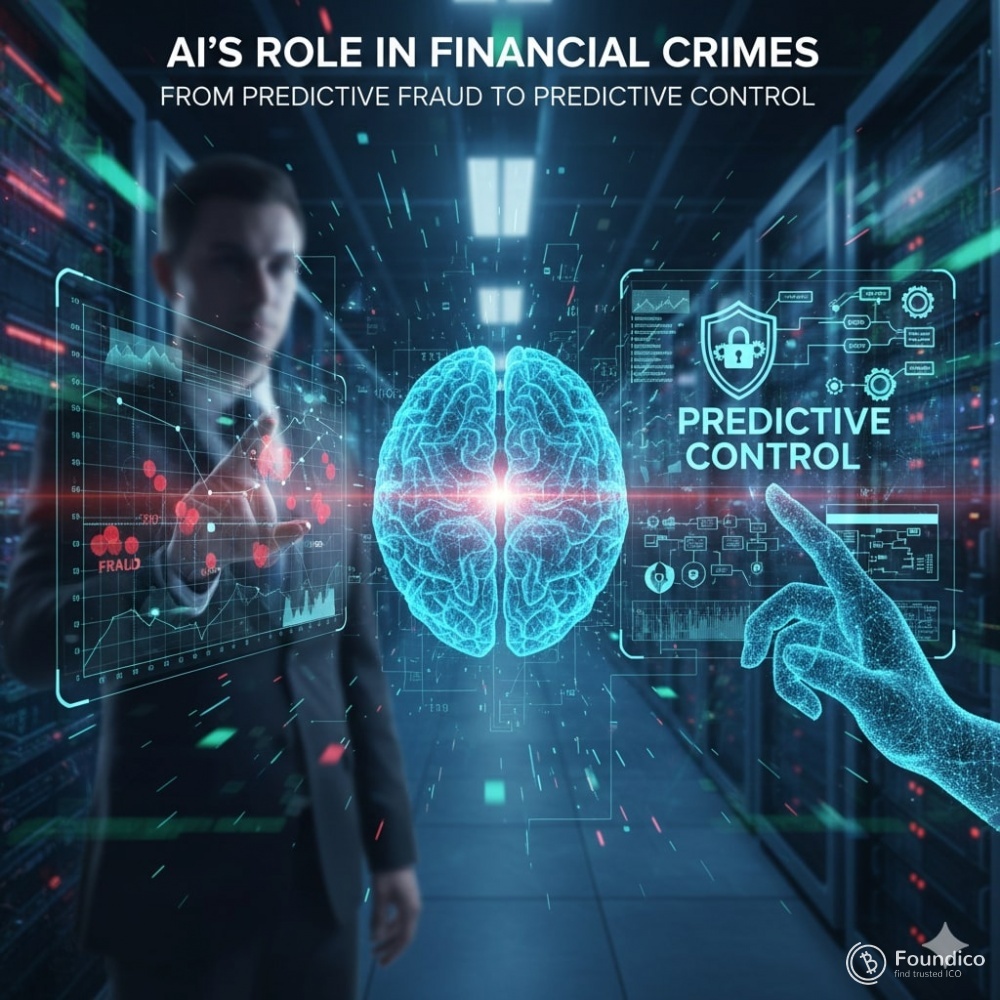AI’s Role in Financial Crimes: From Predictive Fraud to Predictive Control

By Dr. Pooyan Ghamari, Swiss Economist and Visionary
The Dawn of AI in Financial Security
In the shadowy corridors of global finance, where trillions of dollars flow seamlessly across borders, artificial intelligence has emerged as both a guardian and a potential gatekeeper. The evolution of AI in combating financial crimes marks a paradigm shift—from merely predicting fraudulent activities to envisioning a future of predictive control, where systems anticipate and preempt illicit behavior before it materializes. This transformation is not just technological; it is a redefinition of trust, risk, and power in the financial ecosystem.
The Persistent Threat of Financial Crimes
Financial crimes, encompassing fraud, money laundering, terrorist financing, and insider trading, have long plagued economies, eroding public confidence and siphoning vast resources. Traditional detection methods relied on rule-based systems and human oversight, often reactive and overwhelmed by the sheer volume of transactions. These legacy approaches, while foundational, struggled against the adaptability of modern criminals who exploit digital anonymity and high-speed networks.
Predictive Fraud Detection: AI as the First Line of Defense
Enter AI: machine learning algorithms now sift through petabytes of data in real-time, identifying anomalies that escape human eyes. Predictive fraud detection, powered by neural networks and deep learning, analyzes patterns in transaction histories, user behaviors, and even geopolitical events to flag suspicious activities with unprecedented accuracy.
AI models, trained on historical fraud data, forecast risks by assigning probability scores to individual transactions. These systems evolve continuously, adapting to new tactics employed by criminals who themselves leverage AI for sophisticated schemes, such as generating deepfake identities or automating phishing attacks at scale. The arms race is palpable—AI versus AI—where predictive analytics not only detects but also disrupts fraud rings by correlating disparate data points, from IP addresses to spending habits.
Beyond Detection: The Rise of Predictive Control
Yet, the true horizon lies in predictive control. Here, AI transcends reaction, integrating with blockchain ledgers, biometric verification, and global regulatory databases to enforce preemptive measures. Imagine algorithms that not only predict fraud but also autonomously freeze accounts, reroute funds, or alert authorities in milliseconds—creating a web of surveillance that deters crime at its inception.
This shift empowers institutions to model "what-if" scenarios, simulating criminal strategies and fortifying vulnerabilities proactively. In centralized finance, AI-driven control systems could mandate adaptive authentication protocols, scaling security based on real-time risk assessments. Decentralized finance (DeFi), often a haven for illicit flows, stands to benefit immensely from AI oracles that validate transactions against predictive threat models.
Ethical Dilemmas and the Balance of Power
However, predictive control raises profound ethical questions. Who oversees the overseers? Bias in training data could disproportionately target certain demographics, while overreach might stifle legitimate innovation. Privacy erodes as AI demands ever-deeper data access, blurring lines between security and surveillance.
In a world of predictive control, financial freedom hinges on transparent governance. Regulators must embed explainable AI principles, ensuring decisions are auditable and reversible. International collaboration is imperative to standardize these systems, preventing a fragmented landscape where crimes migrate to lax jurisdictions.
A Vision for the Future: Harmonizing Innovation and Integrity
As a Swiss economist committed to visionary progress, I foresee AI ushering in an era of financial integrity. Predictive control, when wielded responsibly, could slash global fraud losses—estimated in the trillions—redirecting resources toward sustainable growth. Yet, success demands vigilance: balancing AI's prowess with human judgment to preserve the essence of free markets.
The journey from predictive fraud to predictive control is underway. Embracing it wisely will define the resilience of tomorrow's financial world, turning potential threats into pillars of unbreakable trust.
